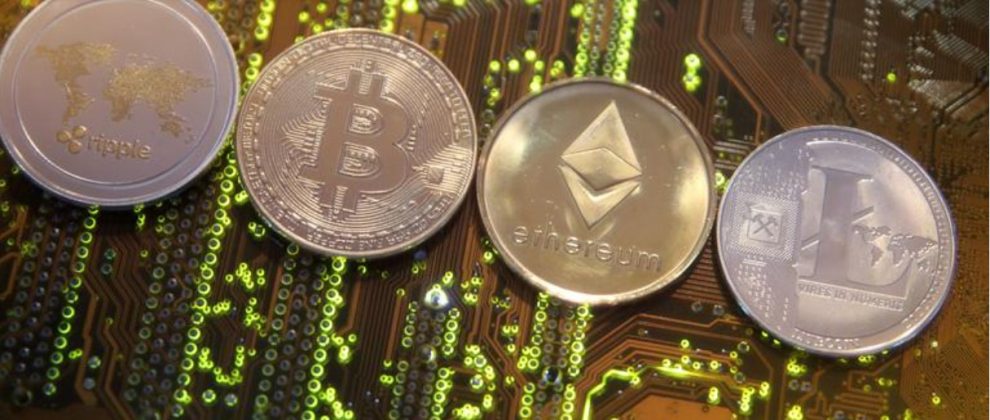(ATF) With reports quoting government officials and the Reserve Bank of India seeking a complete ban on all cryptocurrencies barring an official digital currency – and the finance minister sending out an assurance to the contrary – India clearly seems to be in a quandary about its crypto policy, say experts.
Reuters on Monday reported that India is working on a law banning cryptocurrencies, fining anyone trading in the country or even holding the digital assets.
The bill, one of the world’s strictest policies against cryptocurrencies, would criminalise possession, issuance, mining, trading and transferring crypto-assets, said the report quoting a government official.
Read more: Tsingshan plans nickel smelter in Indonesia powered by renewables
The measure is in line with a January government agenda that called for a ban on private virtual currencies such as bitcoin while building a framework for an official digital currency.
Last week, the Reserve Bank of India too said the central bank has certain “major concerns” over the impact cryptocurrencies may have on the financial stability in the economy and has conveyed to the government its about decision to seek a ban on such instruments.
RBI added while the technology of blockchain should be encouraged, currency is a sovereign right, and cryptocurrencies should not be labelled as currencies.
Instead, the RBI suggested a central bank digital currency (CBDC), which should be different from all cryptocurrencies.
CBDC IS NOT BANNING
But recent comments from the finance minister also suggest that the government might not be favouring a complete ban,
“I have said my view on this, saying the Supreme Court had commented on this cryptocurrency. While we are very clear that the Reserve Bank may take a call on an official cryptocurrency or anything of that kind, but from our side we are very clear that we are not shutting all options off,” Finance Minister Nirmala Sitharaman told a TV channel in an interview last week.
The minister also assured that the government intends to allow a certain amount of window for innovations and experiments in the “blockchain, bitcoin or whatever you may want to call it.”
INDIA IN QUANDARY
Ever since 2008, India has been intensely debating over whether a complete ban was the best option or some amount of regulation is required to ensure that benefits of blockchain are harnessed and available to the fintech sector.
The RBI had in 2018 barred banks and other financial institutions from transacting in cryptocurrencies. Cryptocurrency exchanges reacted to that circular with a lawsuit in the Supreme Court in September and won a respite in March 2020. The court quashed the RBI order on grounds of disproportionality.
“Clearly, there is no consensus among the various authorities on what the cryptocurrency policy in India should be. Some authorities, who cannot take cryptocurrency decisions unilaterally, want cryptocurrency to be banned through legislations – which means the government.
“The government, though, has to consider the interest of the cryptocurrency users and investors while seeking the perspective of these authorities and hence, we see these contradictory signals emerging every so often,” Darshan Bathija, Co-founder and CEO of Vauld, Crypto-based lending platform told Asia Times Financial.
Industry sources add these conflicting signals also make potential and current crypto investors outside the country nervous as well.
“Banning cryptocurrencies would be drastic and these noises I think are created to diminish the sentiment of the asset.” Bathija said.
BURGEONING VOLUME
Bitcoin, the world’s biggest cryptocurrency, hit a record high $60,000 on Saturday (closing at $56514.90 on Monday though), nearly doubling in value this year as its acceptance for payments has increased with support from such high-profile backers as Tesla and China’s Meitu.
In India, despite government threats of a ban, transaction volumes are swelling and 10 million investors now hold $1.5 to $2 billion in crypto-investments, according to industry estimates.
“On an average, $500 million worth of cryptocurrencies are traded across Indian exchanges every day while 10 million investors are estimated to hold $1.5 to $2 billion of crypto,” Nischal Shetty, Co-founder and CEO of bitcoin exchange WazirX told ATF.
User registrations and money inflows at local crypto-exchanges are up multi-fold too from a year ago, added Bathija.
Yet, top Indian officials call cryptocurrency a “Ponzi scheme but add that the government is alive and aware about various issues around the cryptocurrencies and will take a considered view on the issues.
“The cryptocurrency, which has been debated day-in and day-out, has an underlying technology. In an interconnected economy, interconnected world, we cannot isolate ourselves,” said an official from the finance ministry at a virtual conference organised by a banking institute.
And that raises hopes about India not being the first major economy to make holding cryptocurrency illegal. Even China, which has banned mining and trading, does not penalise possession.
“In our perspective, it is clear that investors benefit with the exposure and the asset class, so any ban would clearly go against the interest of Indian citizens,” says Bathija.
- With reporting by Reuters.
Also on ATF:
Chinese beauty app Meitu joins Tesla in cryptocurrency investing
Investors nervous about India’s new crypto bill but regulations welcome























